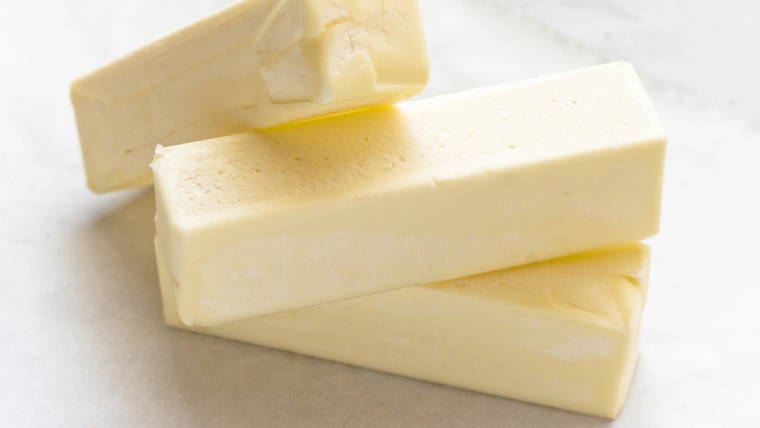One thing you can always count on after a big holiday meal is leftovers. Coupled with food gifts that pile up around the house, it can be confusing to figure out how to store these extras to safely eat later on. Whether it's a few days, or a few months, check out these tips to help you decide whether to leave your foods at room temperature — or keep them in the refrigerator.
Unopened salami or pepperoni: Room temperature
Whether part of a gift basket, or purchased for a cocktail party, all unopened salamis and related versions can be stored at room temperature. Once you've opened them, store them in the fridge, as they're susceptible to bacteria and mold from the cut end, even if most of it remains wrapped.
Leftover can of frosting: Refrigerator
An open can of frosting needs to in your fridge. Unopened, it's fine in your pantry, but once you've used it, it's prone to spoilage and bacterial contamination.
Peanut butter (processed commercial brands): Room temperature
Traditional peanut butters like Jif or Skippy are processed for a long shelf life, even after opening. And any additives used to stabilize the products are FDA approved, and have used safely for decades.

Peanut butter (unprocessed brands) : Refrigerator
Sometimes referred to as "natural" peanut butter, this version of peanut butter is only ground peanuts, and nothing else. It's best to refrigerate because the oils can become rancid and spoiled when left at room temperature for weeks.
To soften, remove from the fridge 30 - 60 minutes prior to using.
Coconut oil: Refrigerator
All oil can become rancid when stored at room temperature for too long. This is particularly true for oils used less often, including coconut, sesame, and walnut oils. To ensure freshness, store in the fridge. Coconut oil is already a solid fat at room temperature. Sesame and walnut oils become solid in the refrigerator, but return to a liquid at room temperature without a change in taste or texture.
Coffee beans: Room temperature
If you're looking for optimal taste and aroma from your morning joe, keep the beans at room temperature. Coffee beans can pick up moisture from the fridge, and compromise flavor (but it doesn’t alter the caffeine content).
For storage longer than a few weeks, wrap tightly in plastic wrap and freezer bags, and store in the freezer for up to 6 months.
Soy sauce: Room temperature
Soy sauce is a fermented product of soybeans, and once opened can safely remain at room temperature.
Hot sauce: Room temperature

Hot sauces are generally a mixture of vinegar, hot peppers and seasonings. Because vinegar is a mild acid, these sauces can be stored at room temp without spoilage. If you choose to store it in the fridge, warm to room temperature for optimal flavor before using.
Leftover pie: Refrigerator
Because the crusts and sometimes the fillings contain butter, cream, and eggs, store leftover pie in the fridge to avoid spoilage.
Mixed nuts: Refrigerator
Nuts contain heart healthy oil that can become rancid when stored too long at room temperature, especially in a warm kitchen. Store your leftover nuts in a sealed bag in the refrigerator. For longer term storage, wrap carefully and store in the freezer for several months.
Balsamic vinegar: Room temperature
All vinegars — plain and specialty types like balsamic or tarragon —are stable at room temperature. Vinegar is a mild acid which deters bacterial growth.
Butter: Refrigerator

As a dairy product, butter must be stored in the fridge to prevent spoilage. While "butter crocks" can be a good idea for short term storage of several hours, for longer storage without spoilage, keep it in the fridge.
Madelyn Fernstrom is health and nutrition editor for TODAY. Follow her on Twitter @drfernstrom